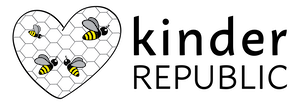For those who are ready to acknowledge that there are structural failings in conventional schools, where even the "best" schools are not doing well enough, there are several common themes. And the Ministry of Education is aware of them.
For example, in their National Curriculum Framework for Secondary Education (2020) they recognize the following shortcomings:
- Curriculum. The curriculum is content-heavy, theoretical, and lacks an inquiry-based approach and practical applications, especially in science, technology, engineering, and mathematics (STEM). This leads to a skills mismatch with labor market needs.
- Assessments. The assessment system, with its high-stakes examinations, favors theoretical skills. It is not sufficiently calibrated through benchmarking studies. Thus, it is difficult to know how students in Sri Lanka perform in comparison with students in other countries and whether the problem lies in poor learning or consistently difficult exams.
- Inadequate educational quality. The quality of teaching and educational leadership, particularly in grades 10–13, is inadequate and also leads to poor learning outcomes. Teachers with sufficient subject knowledge (particularly in STEM subjects) are in short supply, and some teach subjects they are not qualified to teach. Teachers’ professional development tends to focus more on content knowledge to improve pass rates at the examinations. Hence, teachers often “teach to the test” instead of fostering inquiry-based learning.
And they have promised improvements:
- Smaller compulsory core curriculum (teacher led), more optional modules that students can select from (student led, to utilize self learning) - Article from 2 years ago
- Instil the thirst to learn and improve the skill of research-based learning and the ability to work in groups, 70% of assessment to be from activities and assignments with only 30% from end-of-year examinations - Article from 1 year ago
Where are these solutions coming from? A pedagogical approach known as Progressive Education. Its proponents over the years have included Jean-Jacques Rousseau, Jean Piaget, John Dewey, Maria Montessori, Lev Vygotsky, Rudolf Steiner and most recently, Alfie Kohn. Some of it's features include:
- Rather than requiring all students to follow the same curriculum, students have significant autonomy to personalize their curriculum around a core curriculum. The curriculum is more likely to be integrated into themes or projects than be discrete subjects, and is also more likely to be "future ready" with an emphasis on STEM/STEAM, 21st Century Skills, etc
- Students are Intrinsically motivated because they have chosen their curriculum / projects / activities and have freedom to determine their schedules and assignments
- Teachers act as facilitators / guides, who are expected to identify each student's motivation, bring out the best in them, and help them personalize their curriculum and define their learning plans. There is little or no time on direct instruction and theory, with greater emphasis on hands-on learning, and use of techniques such as Inquiry Based Learning and Project Based Learning.
- Emphasis on whole-child education than only academics - e.g. a focus on collaboration and social learning, with a lot of work done in groups
- Assessments tend to be as Projects or Portfolios rather than standardized exams.
- Students are not segregated by age
Because Progressive Education promises to solve all that is wrong with Conventional School (or at least, all that we recognize that's wrong with it), many people fall in love with it... including ourselves! In our journey of searching for alternatives, we too fell head-over-heels in love with Progressive Education. For a while, we were even actively trying to become a franchise of a progressive school network - that was the time we first encountered Democratic / Self-Directed Education and we dismissed it as being too crazy to work!
